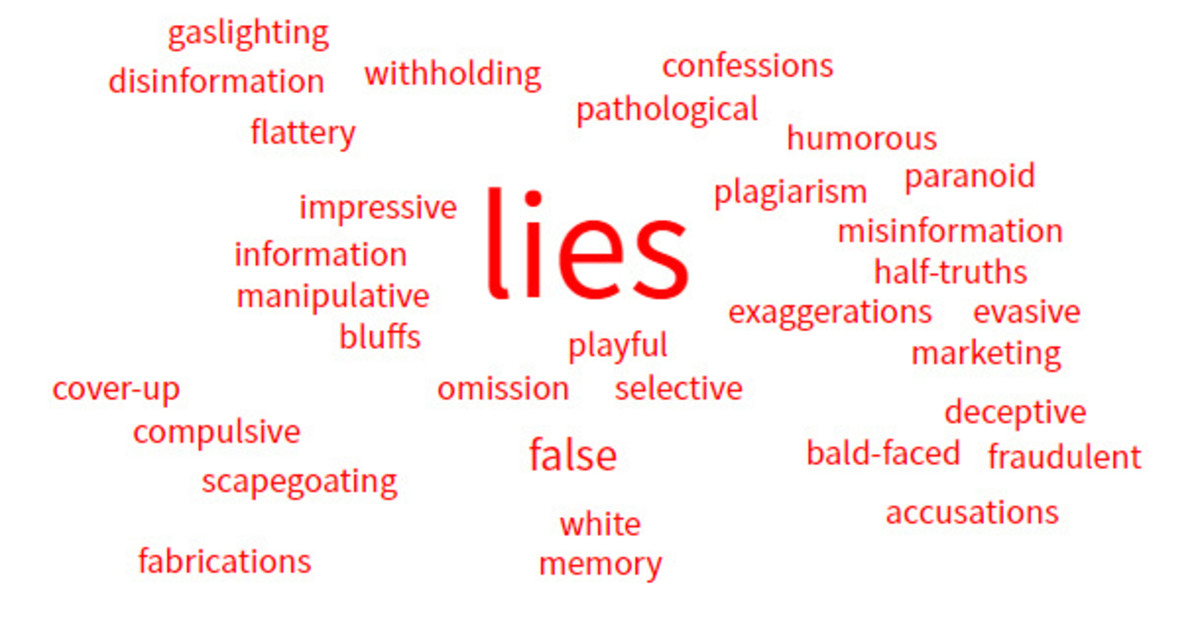Inspirational Quotations by Jewish Authors #10
General & Religious Inspirational Quotations
TOPICS: ANGER: COMPLAINING; CONCEIT; COVETOUSNESS (GREED); CRITICISM; ENVY; EXCUSES; FANATICISM; FAULTFINDING; FEAR; FLATTERY; GOSSIP; GROUCHES; HATE; HYPOCRISY.
ANGER
Think of a cross word as you would think of a bullet, since it cannot be recalled.
---Sophie Irene Loeb, The Evening World, New York, N.Y., Dec. 30, 1913.
Keep the voice low, no matter how the head throbs with anger.
---Sophie Irene Loeb, The Evening World, New York, N.Y., Dec. 31, 1914.
Often when people bury the hatchet, ax marks the spot.
---Myron Cohen, Houston Post, Houston, Texas, Nov. 20, 1951.
COMPLAINING
We all grumble, more or less. We gripe, we complain, we growl at some time. The job we have gets on our nerves. The family we are part of annoys us. At dinner the meat doesn't taste right, or the soup is too hot or the coffee too cold. Sometimes the wife is irritating, the husband is petty, the children are too disturbing. Our friends are suddenly boring, the weather impossible. Our clothes don't look good. There are occasions when we even don't like ourselves.
The above is just a little sampling of some of our grievances against life. Endless is the list of the faults we find in the world at large and in our immediate environment. Let the slightest mishap occur and if it strikes at a special moment in our mood and attitude we are prompt to shout our violent disapproval.
Now this unlovely fact about all of us should not dismay us. Nor should the experience of our discontent from time to time disillusion us with the reality of existence. Indeed to fret and fuss at times is natural for you and me. For to grumble does not mean that you are all wrong, nor that the world is all bad. You don't have to say farewell to everything.
Grumbling only proves one thing, only one universal truth--it reminds you that you are only human after all. Moreover, you can take comfort from knowing that in an hour, or a day, or no later than next week you will be feeling elated and delighted and convinced, if only for the moment, that this is the best of all possible worlds.
—Hyman Judah Schachtel, Houston Post, Houston, Texas, July 28, 1956.
CONCEIT
There are men who feel that they are important. Usually it is because others are not interested. They covet this imaginary importance. It feeds their conceit. “Here I count,” says such a self-inflated individual. “I prefer to be a big frog in a little pond.” (He has just about as much religious faith as a frog.)
---Alexander Lyons, Brooklyn Daily Eagle, Brooklyn, N.Y., Sept. 28, 1932.
Months ago, a barrel of whiskey collapsed on the floor of a liquor emporium and leaked down into the cellar. A little mouse ventured out of its hole, sniffed, took a sip, ran back to its hole, thought it over and came back for more. After a while the little mouse ran up the stairs to the first floor, ran all the way up to the second floor, to the third and to the fourth floor till it got to the roof of the building. There, it walked up to the edge, and, standing up straight on its hind legs, with its whiskers and hair bristling fiercely, cried to all the world above the housetops, “NOW BRING ON YOUR CAT!” Along came the cat and something hit the pavement.
Conceit frequently does to a man what whiskey did to a mouse.
Conceit’s bolt is soon shot.
Ability does not have to everlastingly declare itself; it simply can and does.
Every once in a while the world makes a lion of a man, his head swells and he makes a monkey of himself.
A man discounts his superiority when he becomes too aware of it.
As soon as a great man shows he knows it we doubt it.
Since modesty sits serenely on the best of us, it is incumbent upon the rest of us.
It is one thing to be proud of honors, an entirely different thing to be vain of them.
Modesty is more than a Biblical injunction; it is an important part of the personality of every successful man.
Conceit is the fly in the ointment, the grit in the soil, the lion in the path of any man’s power.
If a man is an underling and he becomes conceited, he remains what he is; if he is an able man and he becomes conceited, he ties a millstone about his neck, cuts the ground from under him and puts an extinguisher on his light.
Broad men do not weaken themselves by small beer conceit; the bow that bears most blends lowest.
Conceit takes the wind out of a man’s sails and throws a wet blanket over opportunity.
When a man glances into the mirror and sees a conceited man, he’s looking over a “dead one.” Conceit is a shroud.
---Herman J. Stich, The Evening World, New York, N.Y., Oct. 27, 1919.
COVETOUSNESS, GREED
We must cast out the activating impulses that lead to actions that undo us. Envy surely makes our going heavy upon the road of life. It makes us unhappy desiring what others have. It causes dangerous extravagances as we strive in our envy to live up to the plane, and a little beyond it, of others better conditioned in life than we are. It leads to hate, when, in our envy, we discover that we cannot compete in appearance or in action or accomplishment with those who have more, can do more, or are more brilliant, or more efficient than we. A great load settles upon our shoulders when once we take envy as our guest. What then shall we do? Cast envy out of our heart, for thou shalt not covet. And so our burden is made lighter.
And the second thing to castaway is avarice, greed. To center all our life on acquiring, possessing for the whole purpose of surveying one's pile of gold, is this terrible source of a heavy burden. It whips one to the task of getting, getting, getting, all the time, and makes him lose sight of anything else in life. He who is possessed by greed and avarice can be possessed by naught else. Even love can find no place there. Greed and avarice fill in every cranny and crevice. It is not only an excluder of life's sweet amenities. It took hold of Midas until he ate gold. It destroys all kindliness, all honor and honesty and integrity. It drives our personalities through everything, every restraint, sacred and profane, to reach the one single goal--possession; just to have and to hold, not to use but to possess. How it masters us, how it leads us down like a slave driver, how its burden galls our flesh, how it holds us back from the friendly road. Let us cast it away; our burden is the lighter.
And vaulting pride, ambition that consumes everything else, those too, undo a man. Pride does not help us on our journey because it thinks solely of the goal and forgets the way we reach the goal. Pride looks for the place, not for the path by which we get there. Pride looks to the seat of honor, without much care of the question whether honor was used in getting there. We are warned against vaulting ambition, which makes life a breathless hurdle race, instead of a jaunt toward God with a song on the lips and trust in the heart. It is the attempt to force the hand of God instead of abiding and waiting and trusting.
—David Lefkowitz, Dallas Morning News, Dallas, Texas, Oct. 1, 1922.
Greed will always destroy friendship. It is greed when you demand too much of your friend, when you expect him to keep on giving and giving to you as though you were entitled to receive it.
The moment a person suspects that what he is doing for someone is not appreciated but is expected, then such a friendship dies.
For friendship is a very sensitive, tender plant which can only grow under ideal conditions.
Consider this illustration: You may have a friend who is wealthy, whereas your own financial status is very limited.
Never allow that friendship to reach a point where you are always on the receiving end and he is always the giver. No matter how humble be your home, how restricted your income, you must return in accordance with your own capacity the generosity bestowed upon you.
It does not matter how meager be the dinner, how small the gift, how inexpensive the attention, as long as you do something to show that you are not just taking but also returning, you will be able to maintain the friendship and what is more important, you will keep your dignity and self-respect.
Greed in time will crush the most beautiful relationship because the heart of friendship is cooperation, sharing, genuine brotherhood.
—Hyman Judah Schachtel, Houston Post, Houston, Texas, Oct. 16, 1954.
CRITICISM
Destructive critics not only do not help to build up, but actually devote their misguided energies to the task of tearing down that which represents the hopes, ideals, aspirations and labor of others. It is so easy to criticize! Particularly if you assume an impersonal attitude towards the subject you are criticizing. It is the easiest thing in the world to tear down that which has taken years to build, but it is also the most cruel and thoughtless action. Those who build up are actuated by the highest ideals of humanity; those who destroy are impelled by the lowest form of elemental passion, a blind impulse that is found in children, in barbarians, in uncivilized people. If you cannot rise above your own petty prejudices; if you cannot make sacrifices; if your vision is too limited to see the height and the breadth of the idealism of others at least show that you respect their motives and give them credit for the fine principles that have actuated them in their course. If you cannot get into the game and lend a helping hand, at least do not indulge in unkind criticism while you sit by your comfortable fire, a mere spectator of life.
---Jessie Abrams, The Canadian Jewish Chronicle, Montreal, Quebec, Canada, April 4, 1919.
If people criticized others less and confessed their own sins more we should be on the road to a much better world. Let us try it.
---Alexander Lyons, Brooklyn Daily Eagle, Brooklyn, N.Y., May 11, 1932.
No matter the subject or situation, certain people will always be conspicuous with criticism. They probably think they are exhibiting their ability. They are really advertising their conceited debility.
---Alexander Lyons, Brooklyn Daily Eagle, Brooklyn, N.Y., Aug. 24, 1932.
It is relatively easy to give advice, to blame, to tell another person what you think is the right thing to do. Many of us seem to enjoy the opportunity to point out what we believe to be wrong in someone's conduct or choice. Our world is full of self-appointed judges and critics. The people who know better than you, whether you are the President or the office boy, never fail nor hesitate to speak out.
Not that constructive criticism is hereby depreciated. Certainly we all need good counsel and judgment. There isn't a person alive who cannot profit from a friend's well-meaning and benevolent scrutiny and appraisal.
But sympathetic understanding is a higher virtue than the most unbiased criticism. The habit of putting yourself in the other fellow's place, when you think he has gone astray, and to realize that you would not do much better under similar circumstances, is a humility greatly to be desired. Such modesty makes living together a happier experience. It would deter the parent from overwhelming the erring child with repeated accusations and remonstrations. It would prevent the boss from tyrannizing over the hapless employee. It would keep the husband or wife from harping upon and magnifying the folly of the other. It would help friends and neighbors to remain close instead of being driven apart at the first sign of a disturbing word or disappointment.
Moreover, the one who has done wrong usually knows about it. Surely, he cannot be improved by you or anyone else embittering his life with everlasting corrections. But sympathetic understanding can heal the wound in the soul of one who has made a mistake. Why not try it the next time? It usually works.
—Hyman Judah Schachtel, Houston Post, Houston, Texas, March 10, 1956.
ENVY
Look around you and learn how to enjoy what is yours close at hand. So many people embitter and waste their lives pining for what they do not have. Thus they fail to appreciate what is already theirs.
For example, they travel to distant parts and fall in love with the mountains and ocean. In their enthusiasm they are positive that happiness would be theirs if only they could live by the mountains and the sea. However, what they do not realize is the fact that the people who already live midst that scenic beauty usually are indifferent to the splendor of their surroundings.
The people near the mountains are pining for the happiness that they can only know midst rolling prairies and the far vistas of unhampered land.
When will we wake up and realize that no enjoyment of life is possible to us as long as we remain blind to the glories nearby?
It is folly to envy others. Don't wish you were in someone else's shoes. The very person you envy probably is miserable and envies you.
Do not waste your chance for happiness by despising what is yours. Learn to be proud of what you have, rejoice in your own portion in life and accord to the other fellow his right to his place in the sun.
Your attitude towards what you have is more important than the facts of what you have. No matter where you are or what your position may be, teach yourself to appreciate what is your own. Why go searching for the pot of gold at the end of the rainbow when all the time the treasure is hidden in your own heart?
—Hyman Judah Schachtel, Houston Post, Houston, Texas, Sept. 11, 1954.
Envy is a terrible force of destruction. Many people become ill and fail miserably in their activities because they are envious of another person's position or success.
They wildly resent the good fortune that has come to a friend or the progress that has been made by a colleague. Deep in their hearts they rage furiously against the happy outcome that is another's. They are in a constant state of tension and soon begin to bewail their hard luck and belittle the other person's attributes and rant against the victory which has passed them by.
Let us admit that it is not easy to be a gracious loser. It is probably easier to be an humble champion than to be noble in defeat. However, for our own mental tranquility we must teach ourselves how to accept failure without rancor and discontent.
If ever we are to change failure to triumph, if ever we are to be victorious instead of defeated, we must never indulge our feelings of envy and find fault with everyone else but ourselves.
What we ought to do is to discover why we have failed, to analyze our weaknesses and to profit from our adversities by achieving understanding. The greatest discoveries in science have come about by those researchers who profited from the mistakes of previous experiments.
The chief difference between a man who forges ahead and one who stays behind is that the former gains, by his disappointments, while the latter is overwhelmed by them.
—Hyman Judah Schachtel, Houston Post, Houston, Texas, April 6, 1957.
EXCUSES
The one greatest cause for human failure is an alibi. An alibi is "personal enemy number one." An alibi is not a mere excuse for failure, but a rationalization which means a ready excuse, a plausible excuse, a well-sounding excuse, which one hugs so tightly that one will not let it go and hence will find occasion to use it.
—Louis L. Mann, Vital Speeches of the Day, Anderson, S.C., Sept. 1, 1953.
FANATICISM
Beware of the individual who claims that his religion is the best, and in consistency with his claim, tries to supplant yours with his even by means of persecution. He thinks that he is religious. I maintain that he is a fanatic.
Religion is man’s consciousness of the Divine. It is possible to everyone and while it is erratic in some it is peculiar to none. Its expression in each is unique. No human beings think and feel exactly alike. Accordingly each has a contribution to make to the other. Each supplements the other.
Religion intelligently apprehended is hospitable and inclusive. An exclusionist in religion exemplifies bigotry, not piety.
Theology is what leads men astray. They lose sight of God spiritually because they are so much concerned about Him intellectually.
---Alexander Lyons, Brooklyn Daily Eagle, Brooklyn, N.Y., Aug. 17, 1932.
FAULTFINDING
A faultfinder finds himself out of harmony with the world and has no friends. He who sees only weakness and shortcomings in others cannot possibly be devoted to them, and as he does not give devotion to others, he cannot receive devotion from them.
—Morris Lichenstein, New York Times, New York, New York, June 25, 1934.
Your home should be your sanctuary. Your home should be the place where you and everyone in it show love for one another, help one another, boost one another, cheer one another on. Why tear down your child, or your husband, or your wife, or brother or sister? They are your own dear ones. They are your people, the closest to you in all the earth. You drive love away from yourself when you outrage those who are closest to you. Let other criticize your dear ones and believe me they will. People are much too ready, alas, to find fault. Don't think that anybody alive can escape criticism. But, at least your home life should be free from that destructive faultfinding which deprives the persons in the home of a major source of much needed confidence and of happiness.
There are enough sources for criticism in this world from strangers, from others outside our family and beyond the realm of our close relationships, who think nothing at all of criticizing us and who do so--sometimes brutally. No one goes through this world without being savagely criticized at one time or another. When our children go to school they come up against criticism on the playground, they are criticized by their teachers, by other boys and girls in all forms of play. When you go to work, you get criticized by the boss, or by your customers. From your neighbor to your preacher in the pulpit you are censured by any number of critics. Therefore, let your home be a place where, for the most part, the experience of the members of the family is one of loving approval, of a pat on the back, of helping them to go forward with confidence and with faith in themselves and in the work that they do.
—Hyman Judah Schachtel, Houston Post, Houston, Texas, March 20, 1954.
FEAR
Fear has made us hesitant and unhappy. Fear of what is coming takes the joy out of what is here. Fear of what is in ambush destroys the present chance of happiness. I say to you, cast aside fear, it paralyzes us so that we cannot fight the things we fear if, forsooth, they do not come to pass. He who gives himself to his fears has first taken himself from God, for if he trusted in God and truly believed in him there would be no cause for fears. Has providence lost a place in your heart? Only thus can fear have crept in. Cast it out, for we cannot walk a friendly road with any happiness if that still binds us down.
—David Lefkowitz, Dallas Morning News, Dallas, Texas, Oct. 1, 1922.
The most tragic failure of religion is the failure to overcome fear.
—Stephen S. Wise, New York Times, New York, N.Y., Jan. 16, 1928.
FLATTERY
Lend an ear to the salt of sincerity rather than the soothing syrup of flattery.
---Sophie Irene Loeb, The Evening World, New York, N.Y., Dec. 21, 1911.
Are you a follower of the fine art of flattery—the artificial flowers of existence?
A woman came to me, weeping, the other day. She told me the pitiful story of her daughter, the everlasting receiver of such artificial bouquets.
“I can do nothing with her,” wailed the mother. “Her head is turned; she thinks that everybody should kowtow to her. She has lost all sense of duty. She has a few attractions and she has MAGNIFIED them beyond all proportion.
“She is simply spoiled by flattery. There is hardly any living with her anymore. She does just as she pleases. The advice of her flatterers seem more important than the advice of her mother, because she has learned to BELIEVE them. I am heartbroken.”
Truly this mother might well agree that “compliments cost nothing, yet many pay dear for them.” I could not help considering that here is a real problem, almost amounting to a disease, which should by some means be checked early. Some vaccine of truth should be used in time to ward off the ravages of false impressions which get into the systems not only of daughters, but of sons as well.
What family has not suffered from the conceited member, the unbearable “ego” individual, who has been gathering such artificial bouquets, and has stored them in his brain until he hasn’t room for anything else? Sometimes such a person gets into power in the world at large, and then the suffering that is caused all around is often worse than real physical illness.
You all know him. He is, perhaps, right among you. Flattery is poison; it should be guarded against and stopped in its growth before it becomes rooted too strongly. I wonder if the recipient of guiled words ever stops to realize how easily the glib tongue keeps wagging, and that it delivers the same dross into many other willing ears.
The old adage that “flattery is the food of fools” has not yet lost its wisdom, and the “flatteree” often wakes up to the realization that the old Grecian philosopher worded so well: “It is better to fall amongst crows than amongst flatterers; for the former wait until we are dead, while the latter eat us alive.”
The willing victims are legion. If the susceptible daughter mentioned above (and there are so many of her) will just realize that the most beautiful bunch of artificial flower is worth infinitely less than just one little genuine natural bloom, she will save herself and those about her more than she can estimate.
Close your ears to it, my dear! Flattery may give you momentary thrills, but the ills that follow prove disastrous, indeed. If you want to recognize a flowery flatterer you can do so. The trouble is that you take him so SERIOUSLY that you make yourself believe that you are many things that you are not.
It is easy to separate the chaff from the wheat if you want to do it. Just use your brains as well as your ears.
Common sense and reason always make beauty more beautiful.
Besides, flattery doesn’t pay. After the flatterer has done his worst you show the effects of flattery every minute. You are RECOGNIZED. You bear the labels “silly,” “spoiled.” “brainless,” “foolish,” “unreliable.”
Believe in our own worth; but take to heart only the natural GENUINE buds and develop others.
---Sophie Irene Loeb, The Evening World, New York, N.Y., Oct. 10, 1914.
GOSSIP
Gossips are but human house flies, against which screens of evasion must be firmly placed.
---Sophie Irene Loeb, The Evening World, New York, N.Y., Mach 18, 1913.
The childish chatter of gossips is only the creaking caused by the contraction of an empty mind.
---Alexander Lyons, Brooklyn Daily Eagle, Brooklyn, N.Y., May 4, 1932.
Gossip stems from a fundamental lack of security. We gossip about others often to reassure ourselves of our own importance.
Curiosity arises about other people's problems and how they solve them. This curiosity emerges as gossip.
‑‑‑Lena Levine, This Week, New York, N.Y., June 22, 1952.
Gossip: One who will never tell a lie if the truth will do as much damage.
---Jack Rosenbaum, San Francisco Examiner, San Francisco, Calif., March 3, 1968.
Gossip: Hearing something you like about somebody you don't.
---Jack Rosenbaum, San Francisco Examiner, San Francisco, Calif., Feb. 18, 1973.
GROUCHES
Turn the grouches into grins.
---Sophie Irene Loeb, The Evening World, New York, N.Y., Dec. 31, 1910.
Every grouch may be divided into three parts—that which really exists, that which you take on yourself and that which you look forward to. When you insist upon a monopoly of the tree there is no room for the grin. Consequently you are labeled a perpetual grouch and you are shunned by man and beast.
Yet if in the interim you manage to see the humor of things, indulge in a hearty laugh occasionally and encourage talk about happy things, why, somehow or other when a grouch comes along, it does not have much chance to stay. An antidote for grouch is cultivate a sense of humor. It is the one saving element in the whole scheme.
---Sophie Irene Loeb, The Evening World, New York, N.Y., Oct. 9, 1913.
HATE
Cultivate a bigness of spirit, so that no man can make you hate him.
---Sophie Irene Loeb, The Evening World, New York, N.Y., Dec. 31, 1910.
HYPOCRISY
Real hypocrisy is the destroying enemy of all ideals and of society itself. It is to be compared to the nefarious deceitfulness of their prey into the trap by displaying the flag of a civilized country. When their trickery had accomplished its purpose, they ran up the black flag and performed their black deeds. The hypocrite is the pirate of all in the process of luring his victim to destruction for the enrichment of himself.
Hypocrisy has the following earmarks: It pretense to a standard that the pretender does not profess. He publicly professes a certain belief and a loyalty and a piety that are not in his heart. This lying insincerity is based on a motive, a very selfish one. The aim is plainly self-aggrandizement, self-benefit, self-exaltation. ...
Hypocrisy always makes impossible and appreciation of the higher and finer side of things. It can never get at the inward spirit, but it avidly does grasp the side that pays in dollars and cents. For that it has a well-developed capacity.
In matters of faith, the religious hypocrite can only understand and only practice the externals. With him the practice of religion is a business, very disgusting to those who can see through him. Since inward significance means nothing to him, the ceremonies and customs that are otherwise so vital become obnoxious as exemplified by him. Deleting the divine message from the observances of religion, he twists what is truly spiritual, edifying and character building into a by-play for personal ends. ...
Egotism, self-will constitute the outstanding features of the hypocrite's character and ways. He does not join an organization with a clean heart, but rather for ulterior personal motives. He is a fraternalist for business reasons. Even the sacred religious fellowship of a congregation is to him only a means to an end. To the Heavenly Father he says, "My will, not thine, be done." ...
He who uses religion for prestige is a hypocrite. ...
Good people should ever be on the alert and remember that hypocritical leaders can never succeed without their cooperation. They should guard against aiding and abetting hypocrisy through indifference, ignorance, weakness or selfishness. They should especially beware of the seduction of flattery, for the public hypocrite is a past master in that art.
—Nathan Blechman, Houston Post-Dispatch, Houston, Texas, Oct. 11, 1926







